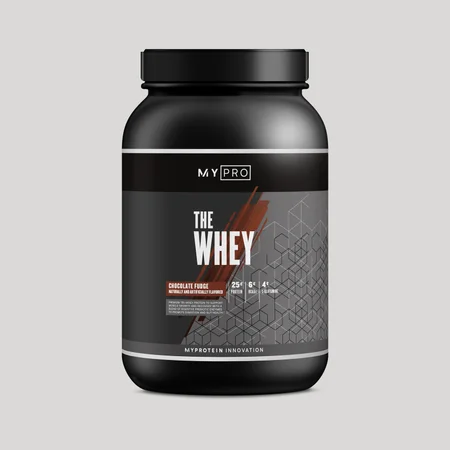
In this article, you'll read:
What Is Whey Protein?
The Difference Between Whey Concentrate, Isolate And Hydrolysate
Whey Protein Benefits
Whey Protein Side Effects And Recommended Dosage
A lot of you may already supplement whey protein in your diet but are you familiar with the different forms and are you choosing the right one?
Regardless of what training goals are, there’s now an extensive amount of research available to support its use in helping with muscle gain and other dietary goals such as weight-loss.1 Before looking into supplementing with whey protein in your diet, lets first have a look at what exactly it is.

What Is Whey Protein?
Milk is used to form cheese or yoghurt and through this process, the remaining liquid that’s left behind is called whey.2 Whey and casein are high-quality proteins as they contain all the amino acids that your body requires.3 Whey is considered the better option after a workout because of its high concentration of fast-digestion proteins in comparison to casein which contains slower-digestive proteins.3
Whey protein is a supplement processed in various levels and sold as a dry powder in several different forms. The three most common are
The Difference Between Whey Concentrate, Isolate, and Hydrolysate
Once you have the liquid whey collected, it then undergoes further processing to increase the protein content. The main difference between the three proteins is the level of processing it undergoes.
The table below shows the nutritional differences between the three proteins:
| Whey Hydrolysate | Whey Isolate | Whey Concentrate | |
| Protein | 24g | 23g | 21g |
| Carbohydrate | 1g | 0.6g | 1g |
| Fat | 1.4g | 0.1g | 1.9g |
| Calories | 113kcal | 93kcal | 103kcal |
| Processing | Most | Slightly more | Less |
| Cost | £31.99/1kg | £26.99/1kg | £21.99/1kg |
Whey Concentrate
Concentrate contains the lowest percentage of protein and the highest amount of fat. This doesn’t mean it’s not a high-quality product though. For a product to be considered a high-quality whey concentrate supplement, it needs to contain at least 75% of protein per serving.4 This concentrate contains more than 80% of protein per serving. Choose concentrate if you are looking for a cost-effective, efficient way of supplementing whey into your diet.
Whey Isolate
Isolate is slightly more processed than whey concentrate, but not as much as whey hydrolysate. There’s no evidence to show a difference in our body’s rate of absorption between whey concentrate and whey isolate, however, it’s lower in carbohydrate and fat, which may suit people looking for a leaner shake. Whey isolate is a good option for individuals who want to watch their calorie intake but still hit their protein targets.
Whey Hydrolysate
Hydrolysate has some unique properties that make it an appealing choice out of the three. It’s more processed than concentrate or isolate and as a result further broken down into smaller peptides that are more rapidly absorbed into the bloodstream. A study on Brazilian elite football players showed a significant reduction in muscle damage in the group taking a whey hydrolysed supplement in comparison to a whey concentrate supplement and placebo made out of maltodextrin.5

Whey Protein Benefits
Without going into too much detail, protein is a key macronutrient in our diet and one of its main functions is to promote muscle growth and repair. A protein is made up of amino acids linked together by peptide bonds.6 When we digest proteins they are broken down by enzymes called Proteases/Peptidases to generate amino acids. Some get used by our small intestine and others enter our portal vein for protein synthesis in skeletal muscle and other tissues.
One of the main benefits of supplementing whey protein in your diet is that it can maximise lean body mass (also known as your muscle) and, as a result, contribute to improved overall body strength.1,7,8,9
One study on soldiers found that supplementing whey protein led to improvements in push-up performance and reductions in fat mass during training.10 Another study on older women found that supplementing whey protein in combination with resistance training led to an increase in strength and muscle hypertrophy.11 So, supplementing whey protein pre- or post-exercise can help to promote muscle growth and repair and overall strength.
Looking to shift a few extra pounds? Protein can also be used in conjunction with a calorie-restricted diet to help promote weight loss and maintain muscle.14 It also doesn’t impact blood sugars levels and helps keep us fuller for longer.
Lastly, if you’re a student on a budget or limiting your meat intake, whey protein is a high-quality source of all essential amino acids that’s cost-effective and can be a convenient way to supplement your dietary protein intake.

Whey Protein Side Effects and Dosage
The amount of protein needed would depend on your individual protein goal and how much protein you’re getting already through your diet. If you’re achieving your daily protein target through dietary protein, then supplementation isn’t needed. The equations below are provided for healthy individuals.15 If you have a medical condition then please seek help from a Registered Dietitian to work out what your protein requirements should be.
Athlete 1.5-2.2g/kg of body weight to build and maintain muscle mass.
Highly active person 1.0-1.5g/kg of body weight to build and maintain muscle mass.
Sedentary 0.8g/kg of body weight to maintain muscle mass.
Post-workout is when most people choose to take their whey protein to rebuild muscle. When to take your whey protein shake is entirely up to your personal preference. A study looking into muscle adaptations found no difference between taking whey protein before or after your workout.16 The guidelines recommend anywhere between 1-3 hours before training and 1-2 hours after training .17
Take-Home Message
Whey protein as a supplement to a healthy balanced diet can result in increased muscle mass, muscle loss prevention, improvement of physical performance, and increased satiety. There is also a lot of promising research coming out associating whey protein with improving health outcomes. Whey protein is available in three main forms and is a cost-effective and efficient way to supplement your dietary protein intake.

Claire is a Registered Dietitian through the Academy of Nutrition and Dietetics and a board-certified Health and Wellness Coach through the International Consortium for Health and Wellness Coaching. She has a Bachelor of Science in Biology and a Master’s degree in Clinical Dietetics and Nutrition from the University of Pittsburgh.
Talking and writing about food and fitness is at the heart of Claire’s ethos as she loves to use her experience to help others meet their health and wellness goals.
Claire is also a certified indoor cycling instructor and loves the mental and physical boost she gets from regular runs and yoga classes. When she’s not keeping fit herself, she’s cheering on her hometown’s sports teams in Pittsburgh, or cooking for her family in the kitchen.
Find out more about Claire’s experience here.
1 Bergia, R., Hudson, J., & Campbell, W. (2018). Effect of whey protein supplementation on body composition changes in women: a systematic review and meta-analysis. Nutrition Reviews, 76(7), 539-551. doi: 10.1093/nutrit/nuy017
2 Kilara, A. (2015). Whey and Whey Products. Dairy Processing And Quality Assurance, 349-366. doi: 10.1002/9781118810279.ch15
3 Wolfe, R. (2015). Update on protein intake: importance of milk proteins for health status of the elderly. Nutrition Reviews, 73(suppl 1), 41-47. doi: 10.1093/nutrit/nuv021
4 USDA. 2015. Agricultural Marketing Service. AMS – USDA. [Online] April 24, 2015. [Cited: January 15, 2019.] https://www.ams.usda.gov/sites/default/files/media/Whey%20Protein%20Concentrate%20TR.pdf.
5 Lollo, P., Amaya-Farfan, J., Faria, I., Salgado, J., Chacon-Mikahil, M., & Cruz, A. et al. (2014). Hydrolysed whey protein reduces muscle damage markers in Brazilian elite soccer players compared with whey protein and maltodextrin. A twelve-week in-championship intervention. International Dairy Journal, 34(1), 19-24. doi: 10.1016/j.idairyj.2013.07.001
6 Wu, G. (2016). Dietary protein intake and human health. Food & Function, 7(3), 1251-1265. doi: 10.1039/c5fo01530h
7 West, D., Abou Sawan, S., Mazzulla, M., Williamson, E., & Moore, D. (2017). Whey Protein Supplementation Enhances Whole Body Protein Metabolism and Performance Recovery after Resistance Exercise: A Double-Blind Crossover Study. Nutrients, 9(7), 735. doi: 10.3390/nu9070735
8 Naclerio, F., & Larumbe-Zabala, E. (2015). Effects of Whey Protein Alone or as Part of a Multi-ingredient Formulation on Strength, Fat-Free Mass, or Lean Body Mass in Resistance-Trained Individuals: A Meta-analysis. Sports Medicine, 46(1), 125-137. doi: 10.1007/s40279-015-0403-y
9 Pasiakos, S., McLellan, T., & Lieberman, H. (2014). The Effects of Protein Supplements on Muscle Mass, Strength, and Aerobic and Anaerobic Power in Healthy Adults: A Systematic Review. Sports Medicine, 45(1), 111-131. doi: 10.1007/s40279-014-0242-2
10 McAdam, J., McGinnis, K., Beck, D., Haun, C., Romero, M., & Mumford, P. et al. (2018). Effect of Whey Protein Supplementation on Physical Performance and Body Composition in Army Initial Entry Training Soldiers. Nutrients, 10(9), 1248. doi: 10.3390/nu10091248
11 Sugihara Junior, P., Ribeiro, A., Nabuco, H., Fernandes, R., Tomeleri, C., & Cunha, P. et al. (2018). Effects of Whey Protein Supplementation Associated With Resistance Training on Muscular Strength, Hypertrophy, and Muscle Quality in Preconditioned Older Women. International Journal Of Sport Nutrition And Exercise Metabolism, 28(5), 528-535. doi: 10.1123/ijsnem.2017-0253
12 Wirunsawanya, K., Upala, S., Jaruvongvanich, V., & Sanguankeo, A. (2017). Whey Protein Supplementation Improves Body Composition and Cardiovascular Risk Factors in Overweight and Obese Patients: A Systematic Review and Meta-Analysis. Journal Of The American College Of Nutrition, 37(1), 60-70. doi: 10.1080/07315724.2017.1344591
13 Allerton, D., Rumbold, P., West, D., & Stevenson, E. (2019). Effect of supplemental whey protein timing on postprandial glycaemia in centrally obese males. British Journal Of Nutrition, 121(6), 637-646. doi: 10.1017/s0007114518003793
14 Dudgeon, W., Kelley, E., & Scheett, T. (2017). Effect of Whey Protein in Conjunction With a Caloric-Restricted Diet and Resistance Training. Journal Of Strength And Conditioning Research, 31(5), 1353-1361. doi: 10.1519/jsc.0000000000001196
15 Jäger, R., Kerksick, C. M., Campbell, B. I., Cribb, P. J., Wells, S. D., Skwiat, T. M., … & Smith-Ryan, A. E. (2017). International society of sports nutrition position stand: protein and exercise. Journal of the International Society of Sports Nutrition, 14(1), 20.
16 Schoenfeld, B. J., Aragon, A., Wilborn, C., Urbina, S. L., Hayward, S. E., & Krieger, J. (2017). Pre- versus post-exercise protein intake has similar effects on muscular adaptations. PeerJ, 5. https://doi.org/10.7717/peerj.2825
17 Helms, E. R., Aragon, A. A., & Fitschen, P. J. (2014). Evidence-based recommendations for natural bodybuilding contest preparation: nutrition and supplementation. Journal of the International Society of Sports Nutrition, 11, 20. https://doi.org/10.1186/1550-2783-11-20








